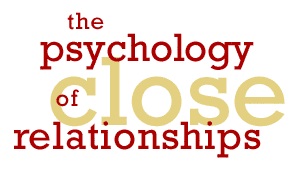  |
  |
|
|
The Social Animal We are social animals. The humanistic psychologist Abraham Maslow ranked social needs -- the need for "belongingness" -- as almost essential to human survival as our needs for physical well-being and safety. Human evolution has favored individuals who can work with others. Since ancient times, families and tribes are counted on to take care of their own. Before United Airlines Flight 93 went down in the southwestern Pennsylvania countryside on September 11, 2001, passenger Jeremy Glick made a cell phone call to his wife Lyn, telling her, "I want you to be happy in your life. I will be happy for you. You need to live your life." Then, as far as anyone can tell, he and several other passengers joined together to foil the hijackers' plans to use another plane as a guided missile. In the pain and grief following the terrorist attacks, Americans reevaluated what matters in life, learning a great deal about the relationships that sustain us. Within hours of hearing about the World Trade Center towers' destruction, it seemed everyone who heard was reaching out to others -- trying to contact friends and relatives who might have been harmed, and those possibly connected to victims. Telephone circuits were jammed. Rumors erupted in the brief lulls between television news reports. In the days after the attack, many New Yorkers received calls and e-mails from long-lost friends who just wanted to know if they were all right. Relationships, of almost any degree, matter to us. When all else is stripped away, as in a tragedy of such magnitude, what we reach for is the comfort of others. What we find is that we are more connected than we thought. If unspecified social connections are so important to our national morale, then our close personal relationships are certainly critical to our very identities: you are someone's child, friend, parent. If you lose that person, you also lose that aspect of yourself. Losing a member of your family of origin takes a piece of your childhood. Losing a friend leaves you wondering who you can count on. Going through a divorce or breakup reflects on your ability to "keep" intimacy. With each loss or failure, we can at least learn lessons. Have you had your heart broken? You can identify what went wrong, and perhaps prevent the same error and pain in the future. Have you suffered from a problem or loss not of your making? You can't prevent tragedy, but you can learn to cope, to go on, in part by cherishing and remembering what you had. To love someone is to take a great risk: you might be rejected, or betrayed or eventually bereaved. But not to take that risk is, for most of us, even worse: to miss your opportunity, to miss out on intimacy. What kind of alternative is that? A classic joke, repeated by Woody Allen at the end of his 1977 movie Annie Hall, involves a man who complains to a psychiatrist about his brother, who "thinks he's a chicken!" When the therapist asks why the family hasn't already had the deluded brother committed for treatment, the relative sheepishly admits, "We would, but we need the eggs." Woody Allen uses the punch line to explain the quest of the movie's characters for success in love, despite their past failures and disappointments. Liking and loving are essential to your well-being. You would probably endure much, sacrifice comfort and even safety for the sake of closeness. So -- how do you like your eggs?  Rate each of the following items on a five-point scale, from "not at all important to me" (1) to "extremely important to me" (5): |